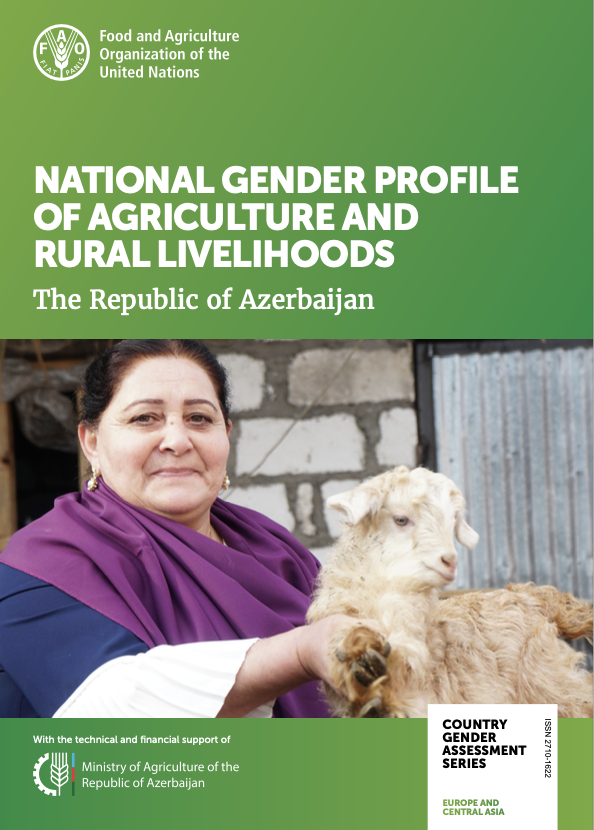National gender profile of agriculture and rural livelihoods: The Republic of Azerbaijan
This country gender assessment (CGA) for the Republic of Azerbaijan was undertaken as part of FAO and national commitments to promote gender equality while integrating a gender perspective into its operations. The resulting CGA report focuses on the intersections of gender, agriculture and rural development, and presents a snapshot of critical gender-based inequalities and their consequences for agricultural production and rural livelihoods in Azerbaijan.



